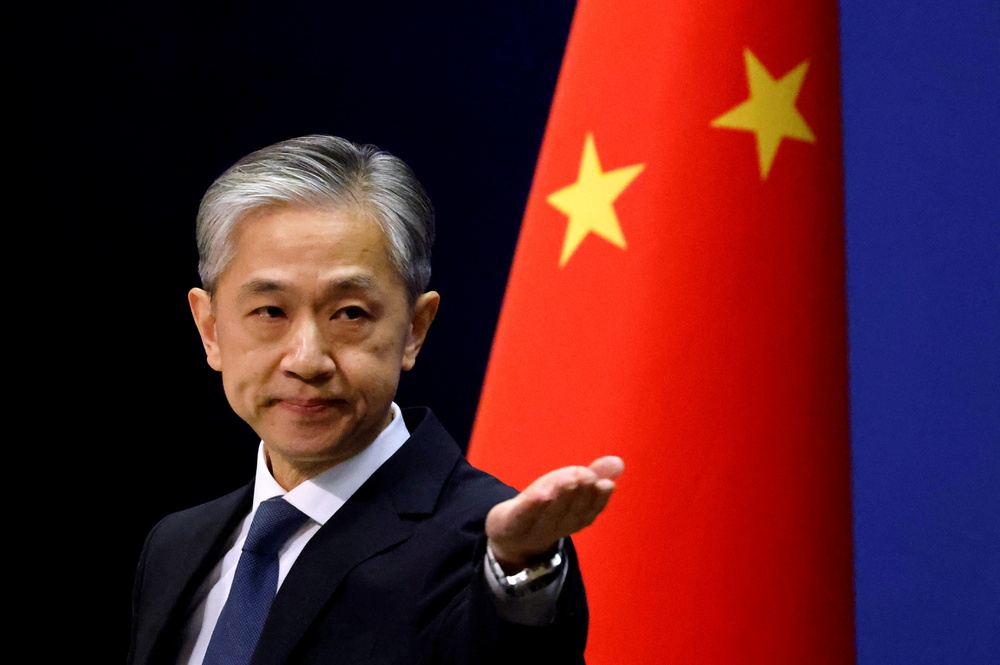|
Getting your Trinity Audio player ready...
|
In a statement released on Friday, the Chinese government rejected the findings of a report by U.S. cybersecurity firm Mandiant, which implicated Chinese-linked hackers in cyberattacks against various public agencies, schools, and other targets worldwide.
The Chinese foreign ministry spokesperson Wang Wenbin labeled the report as “far-fetched and unprofessional” while also pointing out that the cybersecurity industry often fails to report on hacking attacks originating from the United States.
The timing of the report coincided with Secretary of State Antony Blinken’s planned visit to Beijing, aimed at addressing strained relations between the two nations. However, the visit was previously canceled due to a dispute involving a Chinese spy balloon flying over the United States.
According to Mandiant’s report, the hackers exploited a vulnerability in a Barracuda Networks email system, targeting foreign ministries in Southeast Asia, government agencies, trade offices, and academic organizations in Taiwan and Hong Kong.
Describing it as the most significant cyber espionage campaign attributed to a “China-nexus threat actor” since the 2021 attack on Microsoft Exchange, Mandiant highlighted the widespread impact of the attacks, which affected tens of thousands of computers.
China, the United States, and Russia are recognized as leading nations in the development of military-focused hacking capabilities. Security consultants have also noted the existence of hobbyist hacking clubs supported by the Chinese military, potentially acting as freelance agents. The attacks on Barracuda’s email security appliances gave the intruders unauthorized access to compromised networks.
Mandiant further revealed that the email attacks specifically targeted issues of importance to China, particularly in the Asia Pacific region. The hackers focused on searching for email accounts belonging to individuals working for governments of political or strategic interest to China, particularly during diplomatic meetings.
Earlier this year, Microsoft also implicated state-backed Chinese hackers in targeting critical infrastructure in the United States, raising concerns about potential disruptions to crucial communications between the U.S. and Asia during future crises.
While tensions between China and the United States persist in the realm of cybersecurity, accusations, and counter-accusations continue to complicate efforts to establish trust and cooperation in this critical domain.
Efforts to establish trust and cooperation in this critical domain remain a challenge as allegations and counter-accusations continue to strain relations between China and the United States. The recurring incidents of cyberattacks and the exchange of blame have created an atmosphere of suspicion and hindered progress toward meaningful dialogue on cybersecurity.
The Chinese government’s dismissal of the Mandiant report reflects a recurring pattern where accusations from one side are met with denial and counter-accusations from the other. This cycle perpetuates a lack of transparency and accountability, making it difficult to address the growing threats posed by cybercriminals and state-sponsored hacking activities.
The issue of cybersecurity extends beyond the bilateral relationship between China and the United States. It is a global concern that demands collective efforts to establish norms, promote information sharing, and develop mechanisms to prevent and respond to cyber threats. The international community, including governments, private companies, and cybersecurity experts, must work together to strengthen defenses, enhance resilience, and foster trust among nations.
Addressing the complex challenges of cybersecurity requires a comprehensive approach. This includes robust investments in research and development to stay ahead of evolving threats, promoting international cooperation through information sharing and joint exercises, and establishing clear rules and norms governing cyberspace. Building trust and cooperation in this critical domain is essential to safeguarding national security, protecting critical infrastructure, and ensuring the privacy and digital rights of individuals worldwide.
Secretary of State Antony Blinken’s visit to Beijing represents an opportunity to engage in dialogue and find common ground on cybersecurity issues. It is crucial for both China and the United States to move beyond the blame game and work towards establishing a framework of cooperation that addresses shared concerns and promotes responsible behavior in cyberspace.
As the frequency and sophistication of cyberattacks continue to rise, the need for collaboration and coordination becomes more urgent. By transcending geopolitical rivalries and focusing on shared interests, nations can make significant strides in combating cyber threats, safeguarding global networks, and preserving the stability and integrity of the digital world.
The path to establishing trust and cooperation in the realm of cybersecurity may be challenging, but the consequences of inaction are far greater. The time for meaningful collaboration is now, as the stakes are high, and the need for a secure and resilient cyberspace has never been more pressing.
